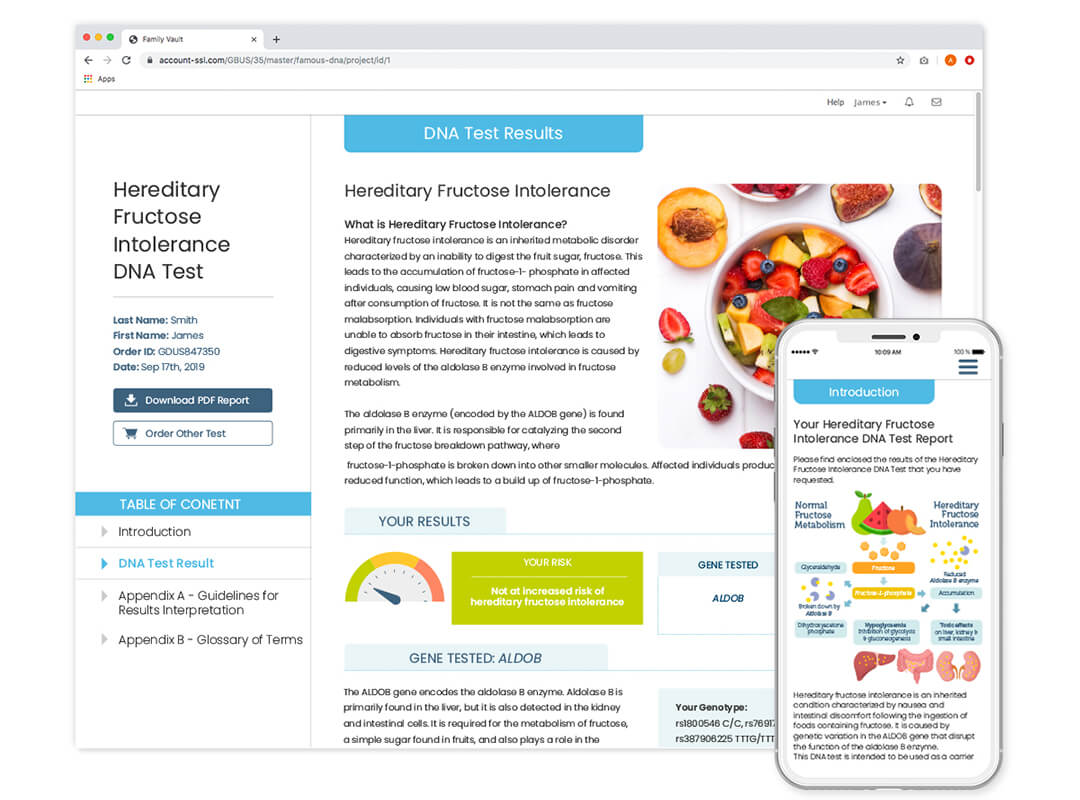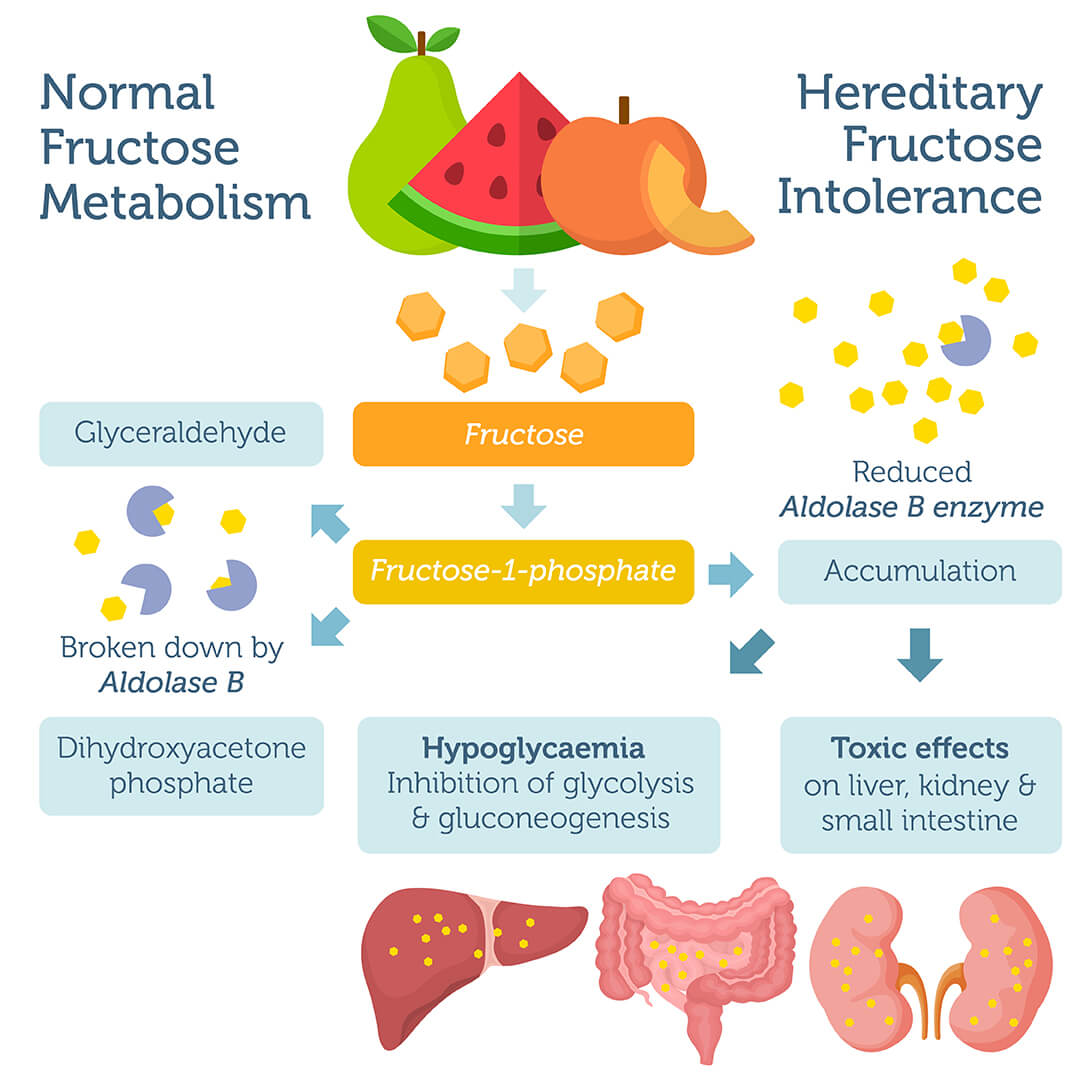Hereditary Fructose Intolerance DNA Test
Are you a genetic carrier for hereditary fructose intolerance? Find out with this DNA Test.
- Detects four ALDOB variants which cause hereditary fructose intolerance
- Characterized by an inability to digest the fruit sugar fructose
- Carrier screening test intended for couples who are planning to become pregnant
- 100% private and confidential online results
Already have DNA markers? Sign in and upload your data to view results.
Need to take the DNA Test? Order our easy-to-use swab kit.





